Given the benefits of a plant-based diet, many people may choose to seek out a plant-based doctor who has a deep understanding of the role of nutrition in health and disease. A plant-based doctor can provide patients with expert guidance and support to help them adopt a plant-based diet, which may help them prevent or manage chronic diseases.
Many of the following doctors have spent their entire careers dedicated to researching the impact of diet on health, and have written life-saving books about their area of focus.
Table of Contents
- Why Seek Out a Plant-Based Doctor?
- Vegan Physicians
- Researchers and Professors
- Vegan Pediatricians
- Plant-Based Gastroenterologists
- Naturopathic Doctors
- Vegan Doctors are Changing the World
Why Seek Out a Plant-Based Doctor?
According to a study published in the Journal of the American College of Nutrition, the average medical student receives only 19.6 hours of nutrition education throughout their entire medical school career. This lack of nutrition education is especially concerning given the growing body of research that suggests that a plant-based diet can be highly effective in preventing and even reversing many of the leading chronic diseases that afflict people today.
Patients cannot expect doctors to have an understanding of nutrition (that’s what Registered Dietitians are for), and sadly many doctors don’t understand the role that nutrition plays in disease prevention and treatment.
Seeking out healthcare professionals who are knowledgeable about the relationship between diet and disease can help patients can take an active role in preventing and managing chronic diseases.
Vegan Physicians
Dr. Michael Greger
Dr. Michael Greger is a physician, New York Times bestselling author, and internationally recognized speaker on nutrition, food safety, and public health issues. He runs NutritionFacts.org, a non-profit organization that provides free daily videos and articles on the latest in nutrition research. Dr. Greger’s focus on plant-based eating is rooted in his desire to prevent and reverse chronic diseases.
His books include How Not to Die, The How Not to Die Cookbook, and How Not to Diet, which provide evidence-based nutritional advice and recipes to help people transition to a healthier, plant-based lifestyle. In his first book, he popularized the concept of “The Daily Dozen”—12 foods people will greatly benefit from eating every day.
Dr. Greger believes that by following a whole-food, plant-based diet, we can avoid many of the leading causes of death, such as heart disease, stroke, and cancer. Through his books, lectures, videos, and public appearances, Dr. Greger has become an influential figure in the health and wellness community, and his work has helped shape the way we think about food and its impact on our health.
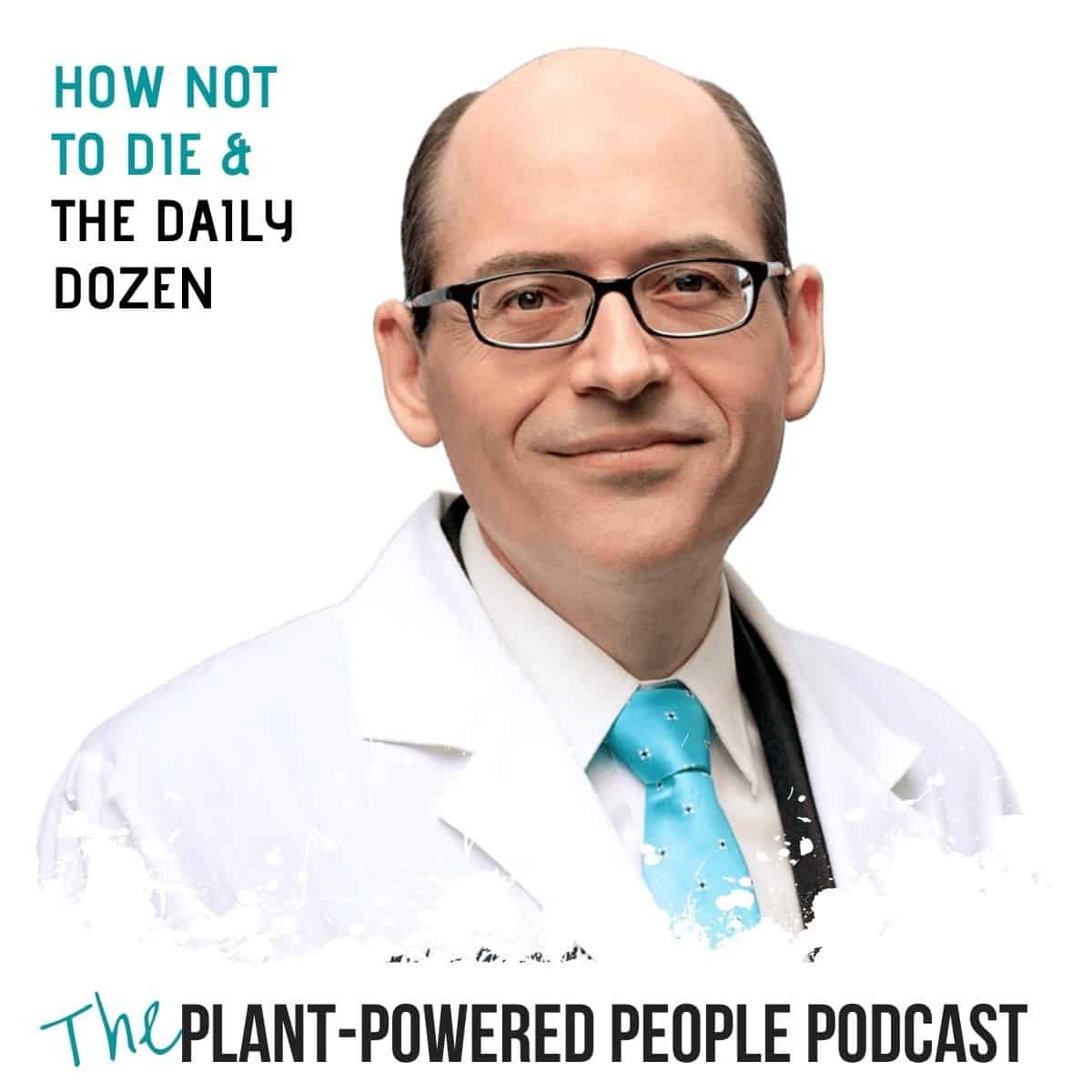
Dr. Caldwell Esselstyn
Dr. Caldwell Esselstyn is an American physician, researcher, and retired surgeon who is widely known for his groundbreaking work on preventing and reversing heart disease through a whole food, plant-based diet. He has been at the forefront of the plant-based nutrition movement for decades, advocating for a low-fat, plant-based diet as a means of promoting optimal health
He authored the revolutionary book Prevent and Reverse Heart Disease (a must-read) based on years of his own research that showed repeatedly that heart disease, which is the leading cause of death in the United States, can be prevented and even reversed through dietary changes.
In the 1980s, Dr. Esselstyn conducted a study on a group of patients with advanced heart disease who were not responding to traditional treatments. He put them on a low-fat, plant-based diet and found that they experienced significant improvements in their heart health. This study laid the foundation for his later work on preventing and reversing heart disease through a plant-based diet. Dr. Esselstyn has since conducted several more studies that have confirmed the benefits of a plant-based diet for heart health.
His work has inspired many individuals to adopt a plant-based lifestyle in order to improve their heart health and prevent heart disease, and ultimately save their own life.
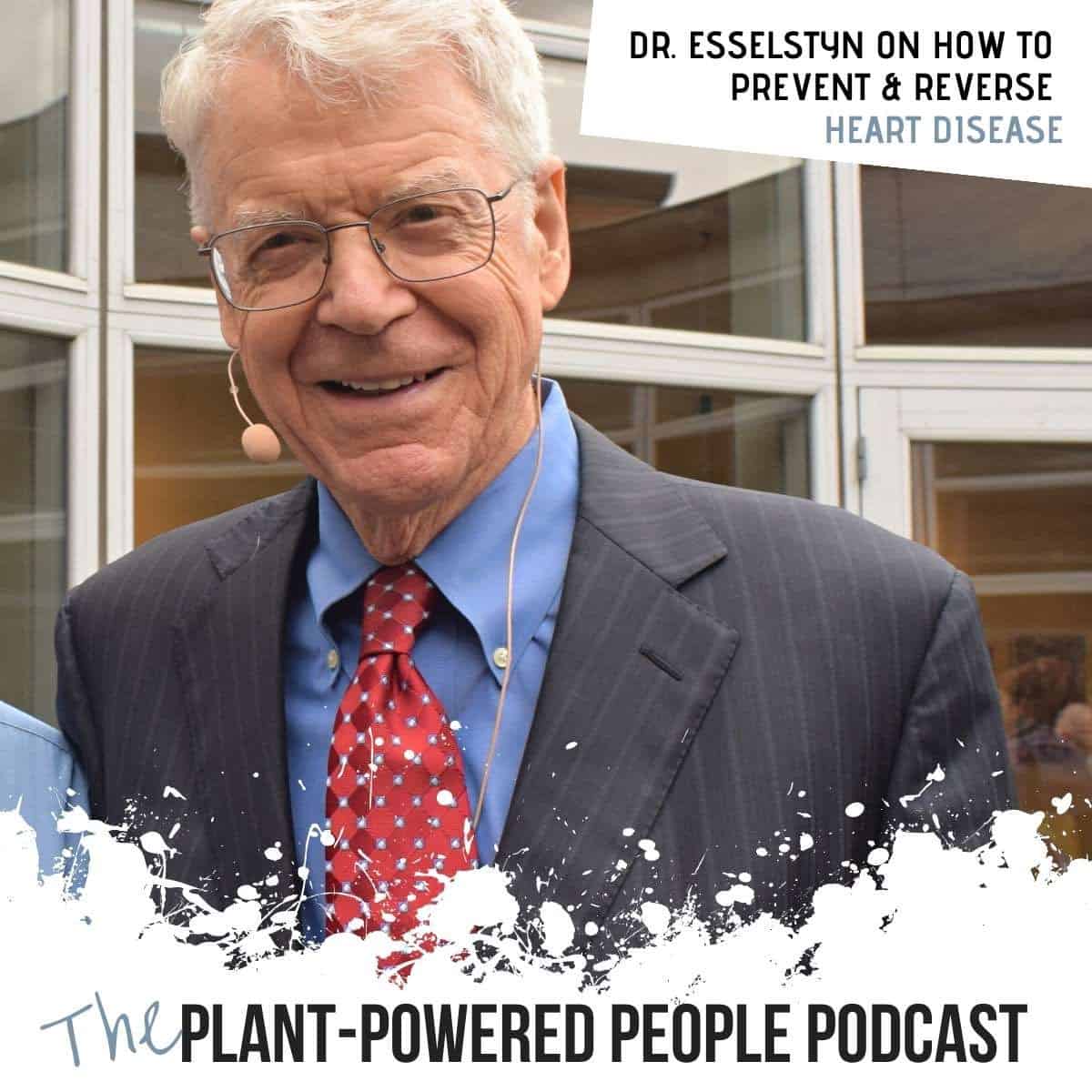
Dr. Michael Klaper
Dr. Michael Klaper is a physician, author, and educator who advocates for a plant-based diet for optimal health. He has been featured in several documentaries on plant-based living, including “What the Health.”
Dr. Klaper’s work focuses on the impact of diet on chronic diseases such as heart disease, diabetes, and cancer. He believes that a whole-food, plant-based diet can not only prevent but also reverse many of these diseases, and his work has inspired many individuals to adopt a plant-based lifestyle in order to improve their health.
Dr. Klaper’s passion for plant-based nutrition has made him a leading voice in the movement, and he has worked tirelessly to educate the public about the benefits of a plant-based diet.
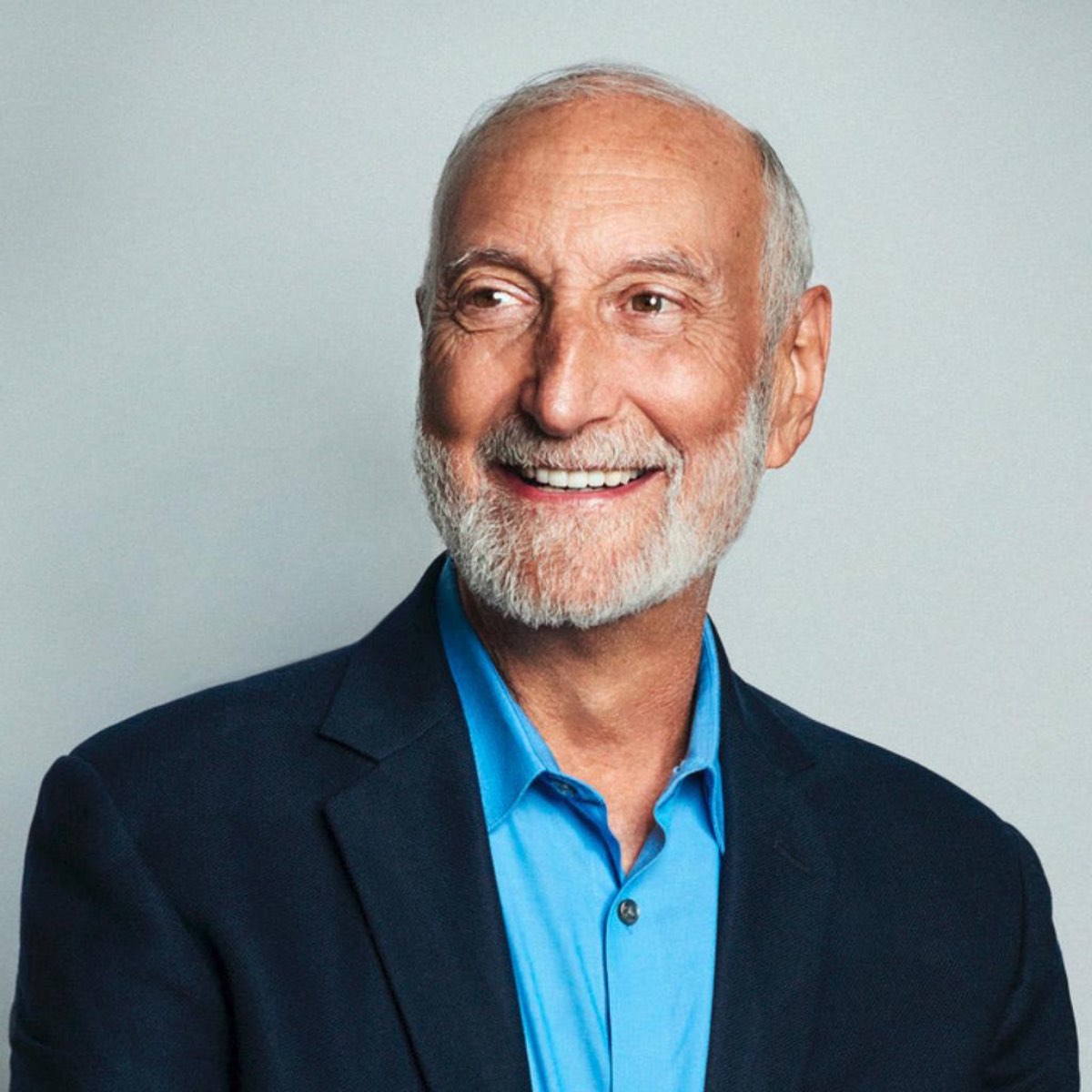
Dr. Joel Fuhrman
A well-known physician and author, Dr. Joel Fuhrman advocates for a nutrient-dense, plant-based diet for optimal health and longevity. He has authored several books, including Eat to Live, which is considered a classic in the plant-based nutrition world.
In his work, Dr. Fuhrman emphasizes the importance of incorporating nutrient-dense whole foods, such as leafy greens, berries, nuts, and seeds, into one’s diet to achieve optimal health. He also stresses the benefits of consuming a diet that is low in processed foods and animal products.
Through his research, Dr. Fuhrman has shown that a plant-based diet can help to prevent and reverse chronic diseases such as heart disease, diabetes, and cancer.
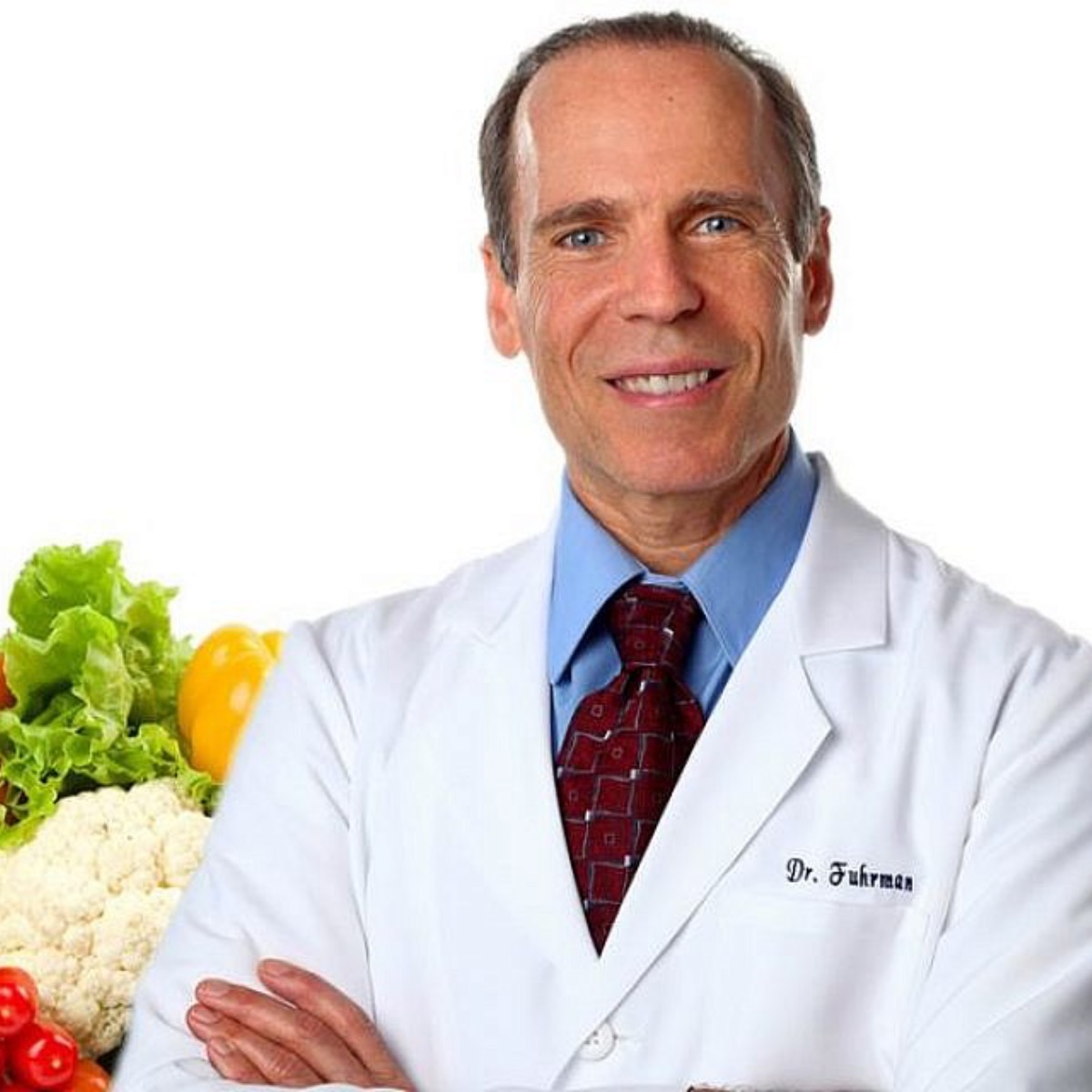
Dr. John McDougall
Dr. John McDougall is a physician and author of several books, including The Starch Solution. With over 40 years of experience in medicine, Dr. McDougall is a well-known advocate for a plant-based, low-fat diet for optimal health. His work focuses on the benefits of a diet rich in whole plant foods, including grains, vegetables, fruits, and legumes.
His work has demonstrated that that a low-fat, plant-based diet can prevent and reverse chronic diseases such as heart disease, diabetes, and obesity.
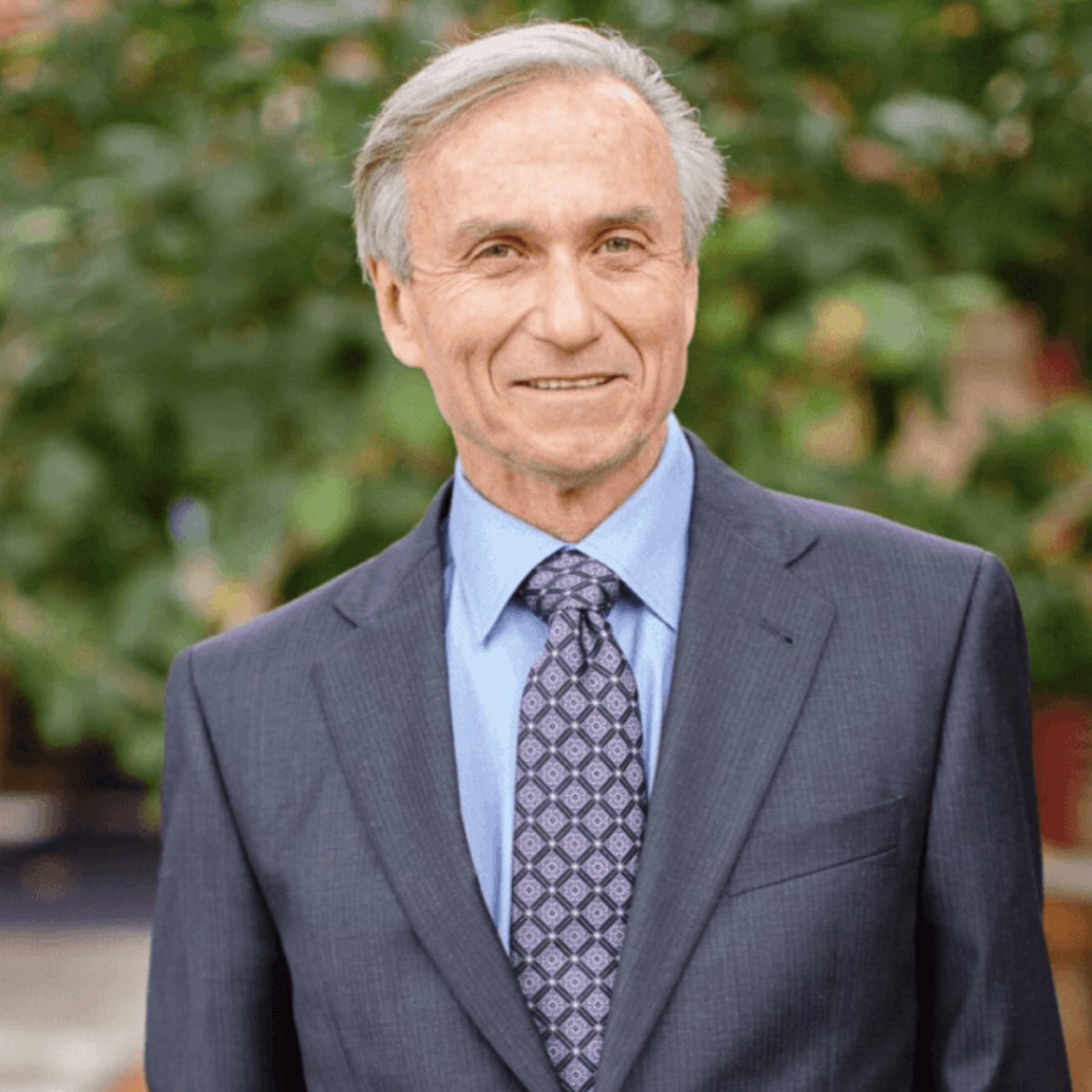
Dr. Michelle McMacken
Dr. Michelle McMacken is a physician who advocates for a plant-based diet for optimal health and ethical reasons. She is the director of the Plant-Based Lifestyle Medicine Program at NYC Health and Hospitals and has been featured in several documentaries on plant-based living.
Dr. McMacken’s work highlights the benefits of a plant-based diet in preventing and reversing chronic diseases such as heart disease, diabetes, and obesity. She also emphasizes the ethical considerations of consuming animal products and the environmental benefits of a plant-based diet.
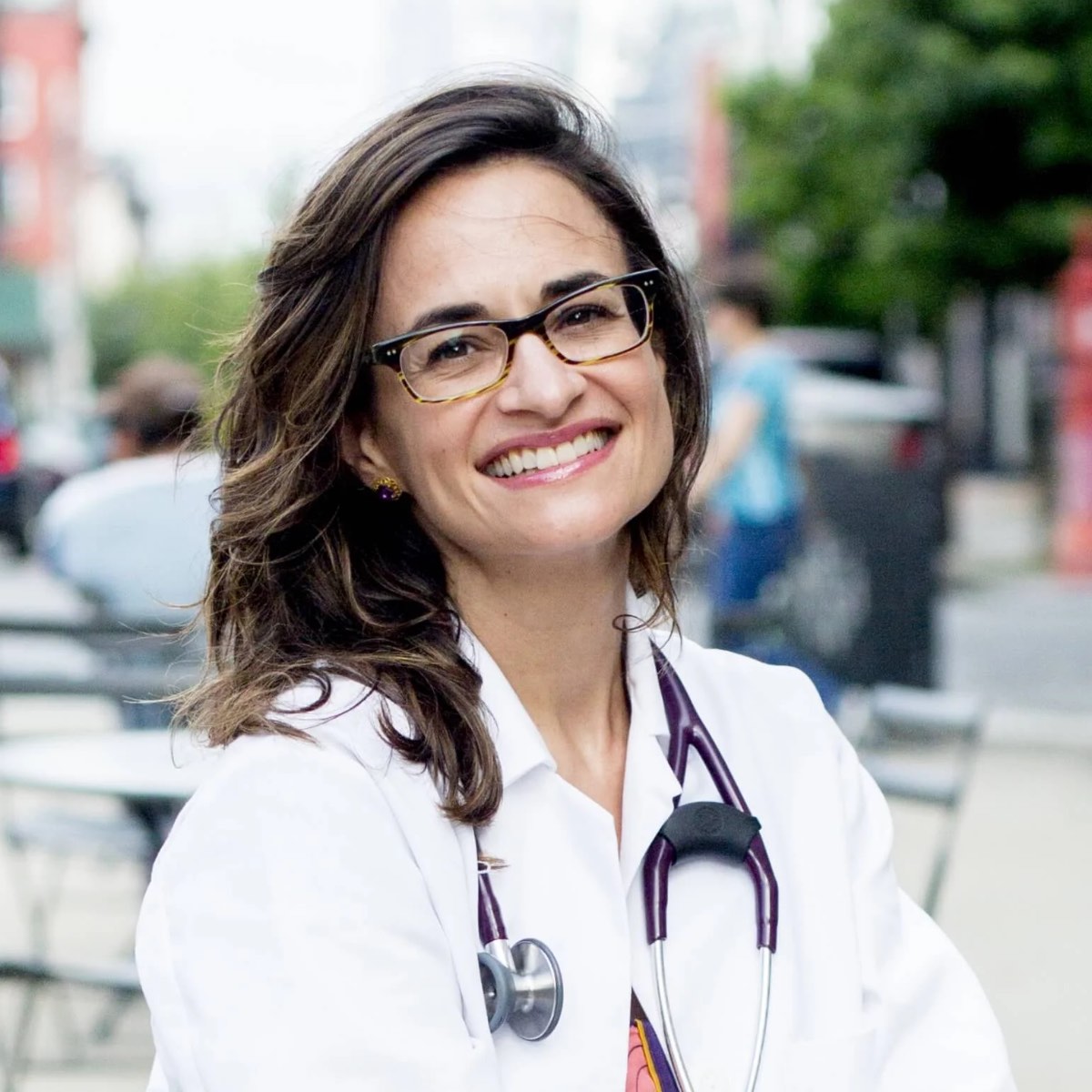
Dr. Garth Davis
Dr. Garth Davis is a bariatric surgeon and author of the book “Proteinaholic.” He advocates for a plant-based diet for optimal health and has been featured in several documentaries on plant-based living.
These doctors represent a growing movement of medical professionals who advocate for plant-based living as a way to improve health and prevent disease. They offer a diverse range of expertise and perspectives on the benefits of plant-based living for human health. By following their advice, individuals can improve their health, and reduce their risk of chronic disease.
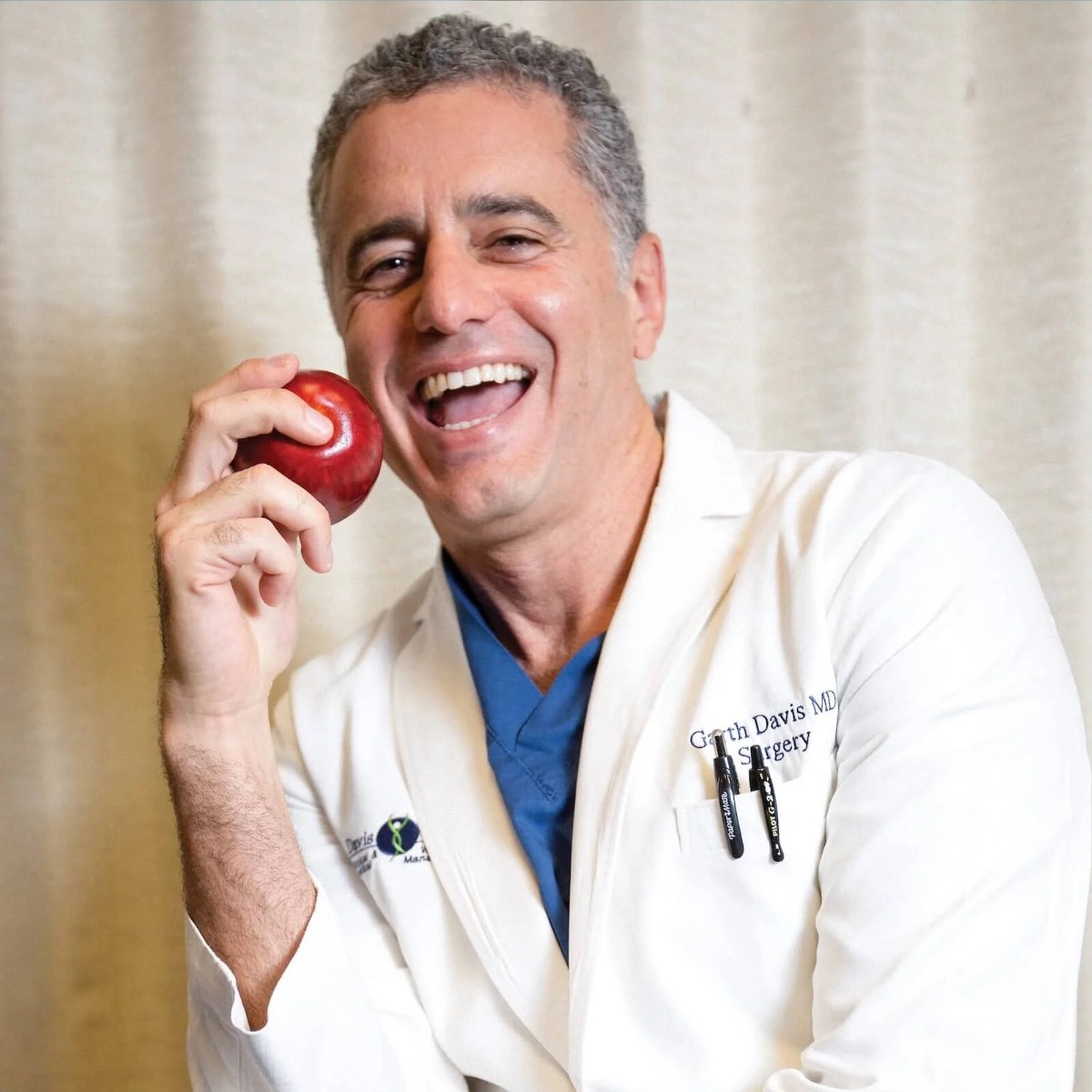
Dr. Joel Kahn
Dr. Joel Kahn is a cardiologist and author who advocates for a plant-based diet for optimal heart health. He has been practicing cardiology for over 25 years and is the founder of the Kahn Center for Cardiac Longevity in Michigan. Dr. Kahn has also authored several books on heart health and has been featured in documentaries such as “What the Health” and “Forks Over Knives.”
Dr. Gemma Newman
A family physician based in the United Kingdom, Dr. Gemma Newman advocates for a plant-based diet for optimal health. She has been practicing medicine for over 15 years and has seen the benefits of plant-based living firsthand in her patients. She is also the author of The Plant Power Doctor and has been featured in documentaries such as “Vegan: Everyday Stories” and “The Game Changers.”
Dr. Milton Mills
Dr. Milton Mills is a physician who has been practicing medicine for over 30 years and has seen the benefits of plant-based living in his patients.
He received his medical degree from Stanford University School of Medicine and has held positions at various medical institutions, including the National Institutes of Health (NIH).

Dr. Mills has been a vocal advocate for plant-based nutrition, and has spoken extensively about the benefits of a vegan diet for human health. He has also been involved in research on the links between diet and chronic diseases, such as diabetes and heart disease, and is also a proponent of using plant-based diets to address health disparities in low-income and minority communities.
In addition to his work in nutrition and health, Dr. Mills is also an advocate for social justice and animal rights. He has spoken out against institutionalized racism and has highlighted the ways in which systemic oppression can impact health outcomes.
You may have seen Dr. Mills in the popular documentaries “What the Health” and “Cowspiracy.”

Doctor Ted Barnett
A highly respected figure in the field of vegan doctors, Dr. Ted Barnett is a practicing interventional radiologist in Rochester, New York, and the founding President of the non-profit organization Rochester Lifestyle Medicine Institute. He has extensive credentials and expertise in lifestyle medicine, and carries a BS from Yale University and a MD from Tufts University. He brings over 20 years of experience to his practice, where he champions the adoption of a Whole-Food Plant-Based (WFPB) diet as a cornerstone of optimal health.
Dr. Barnett is not only a Diplomate of the American Board of Lifestyle Medicine but also an active member of the American College of Lifestyle Medicine. Through programs like the “15 Day WFPB Jumpstart” and the “Lift Project,” Dr. Barnett empowers individuals to embrace healthier and more ethical lifestyles, making him a distinguished advocate for change in healthcare and beyond.
Dr. Brooke Goldner
Dr. Brooke Goldner is a physician and author of the book “Goodbye Lupus.” She advocates for a plant-based, whole-foods diet to heal and prevent autoimmune diseases. Dr. Goldner’s work highlights the benefits of a plant-based diet in preventing and reversing autoimmune diseases such as lupus.
She believes that a diet rich in whole plant foods, including fruits, vegetables, whole grains, nuts, and seeds, can help to reduce inflammation and promote healing in the body.
Dr. Scott Stoll
Dr. Scott Stoll is a physician and co-founder of the Plantrician Project, a non-profit organization that promotes plant-based nutrition. He has been practicing medicine for over 20 years and has seen the benefits of plant-based living in his patients. His book Alive! was published early in his career, and he has been featured in documentaries such as “Forks Over Knives” and “The Game Changers.”
Dr. Irminne Van Dyken
Dr. Irminne Van Dyken is a general surgeon who advocates for a plant-based diet for optimal health and ethical reasons. She has been practicing medicine for over 10 years and is currently located in Hawaii where she is affiliated with several hospitals in the area. Dr. Van Dyken has also been featured in documentaries such as “Eating You Alive” and “The Game Changers.”
Researchers and Professors
Dr. T. Colin Campbell
Dr. T. Colin Campbell is a nutritional biochemist and author of the book “The China Study.” He is a professor emeritus at Cornell University and has conducted research on the relationship between diet and disease for over 40 years.
Dr. Campbell’s research has shown that a whole-food, plant-based diet can not only prevent but also reverse chronic diseases such as heart disease and cancer. He believes that by focusing on whole, plant-based foods and avoiding processed and animal-based products, we can improve our health and prevent many of the leading causes of death. His work has been instrumental in the growth of the plant-based nutrition movement and has inspired countless individuals to make dietary changes in order to improve their health.

Dr. Neal Barnard
Dr. Neal Barnard is a clinical researcher, author, and founding president of the Physicians Committee for Responsible Medicine (PCRM). He advocates for a plant-based diet for health and ethical reasons and has authored numerous books on the subject, including Dr. Neal Barnard’s Program for Reversing Diabetes: The Scientifically Proven System for Reversing Diabetes Without Drugs.
Dr. Barnard’s work focuses on the impact of diet on chronic diseases, particularly diabetes and heart disease. He believes that a plant-based diet is the most effective way to prevent and even reverse these diseases, and his research has shown that a low-fat, plant-based diet can be more effective than traditional approaches to treating chronic diseases.
Through his work with PCRM, Dr. Barnard has become a leading voice in the plant-based nutrition movement, working to educate both the medical community and the general public about the benefits of a plant-based diet.

Vegan Pediatricians
Dr. Monica Davern, MD MPH
Dr. Monica Davern, MD MPH is a vegan pediatrician, mom, and athlete in Denver, CO. She is the creator of Leafy Littles Online course for families and advocates for simple lifestyle changes that can help make a plant-based lifestyle work for anyone. She believes many of the health challenges children encounter today can be prevented or markedly improved through these simple changes.
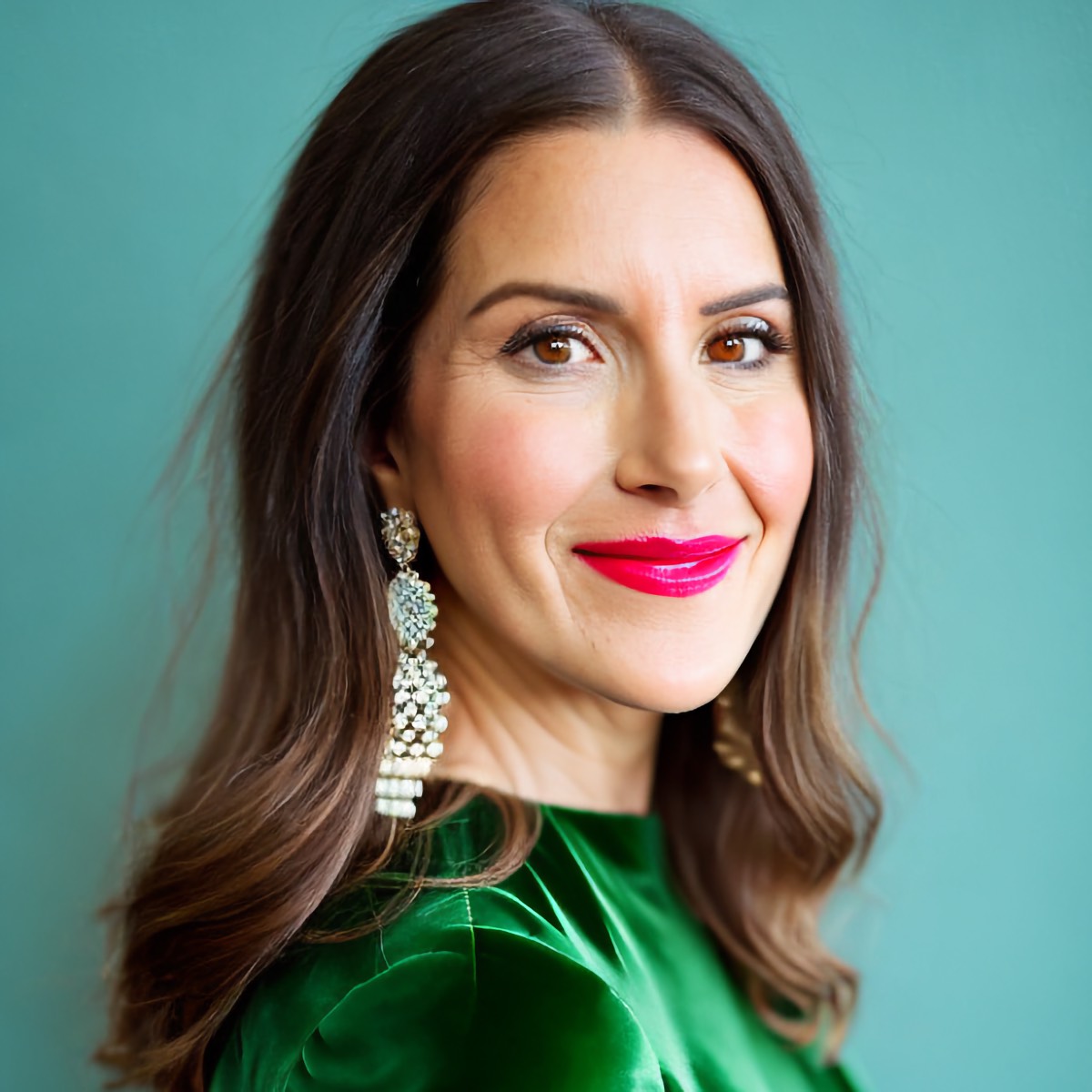
Dr. Reshma Shah
Dr. Reshma Shah is a plant-based pediatrician and co-author of the book “Nourish: The Definitive Plant-Based Nutrition Guide for Families.” She serves as an associate program director for the pediatric residency program at the University of California, San Francisco, and has been featured in several documentaries on plant-based living.
She is passionate about educating families on how to incorporate more plant-based foods into their diets, especially for children.
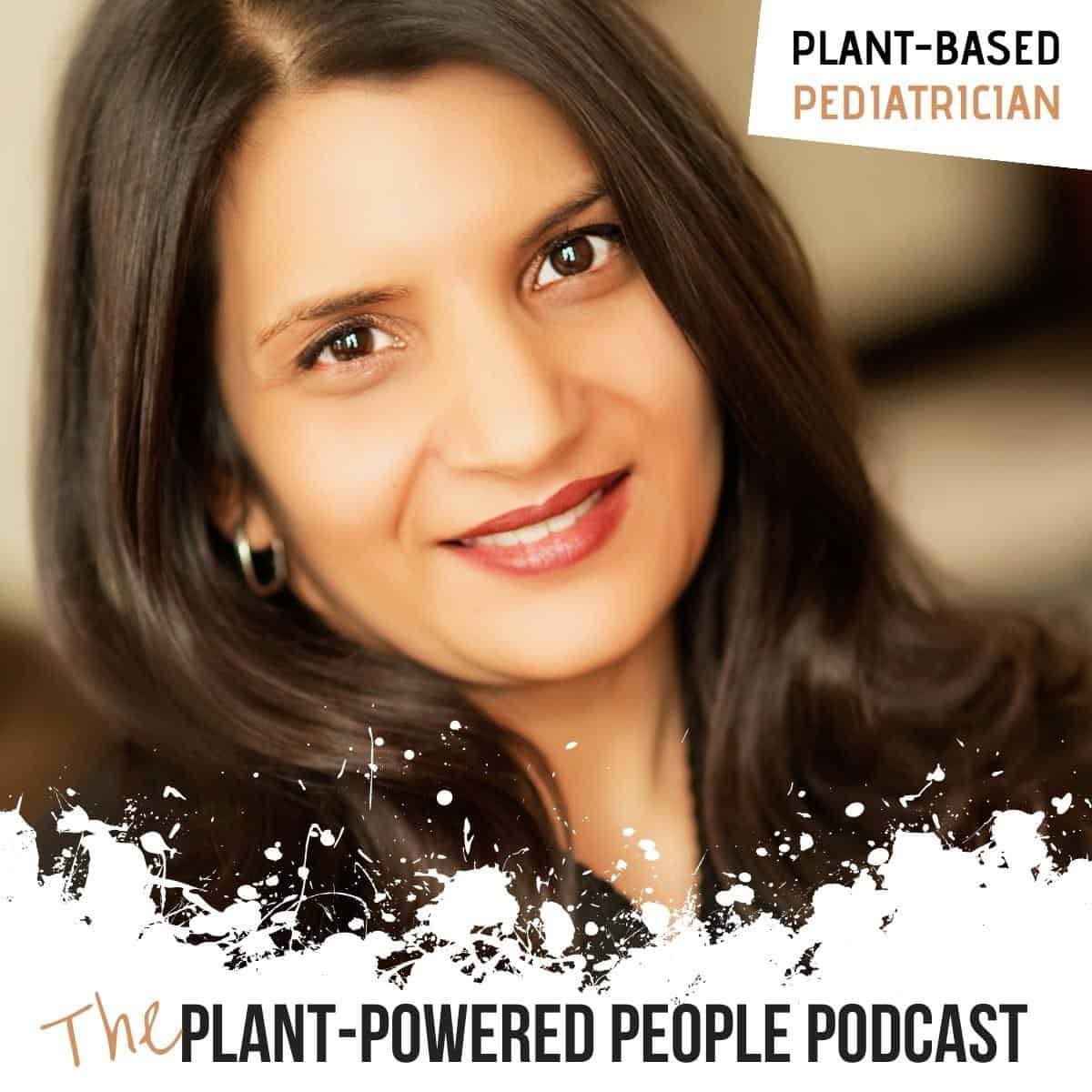
Plant-Based Gastroenterologists
Dr. Will Bulsiewicz
Dr. Will Bulsiewicz is a plant-based gastroenterologist and author of the book Fiber Fueled. He advocates for a plant-based diet rich in fiber for optimal gut health. Dr. Bulsiewicz’s work emphasizes the importance of incorporating fiber-rich plant foods into one’s diet to achieve optimal gut health.
Dr. Bulsiewicz—also known as @TheGutHealthMD on Instagram—shares how a diet rich in fiber can promote healthy gut bacteria and reduce the risk of gut-related diseases such as colon cancer. Through his work, Dr. Bulsiewicz aims to educate people on the benefits of a plant-based diet for optimal health and wellbeing.
He was also the first repeat guest on The Plant-Powered People Podcast talking all about gut health in Episode 75 and the importance of fiber in Episode 76.
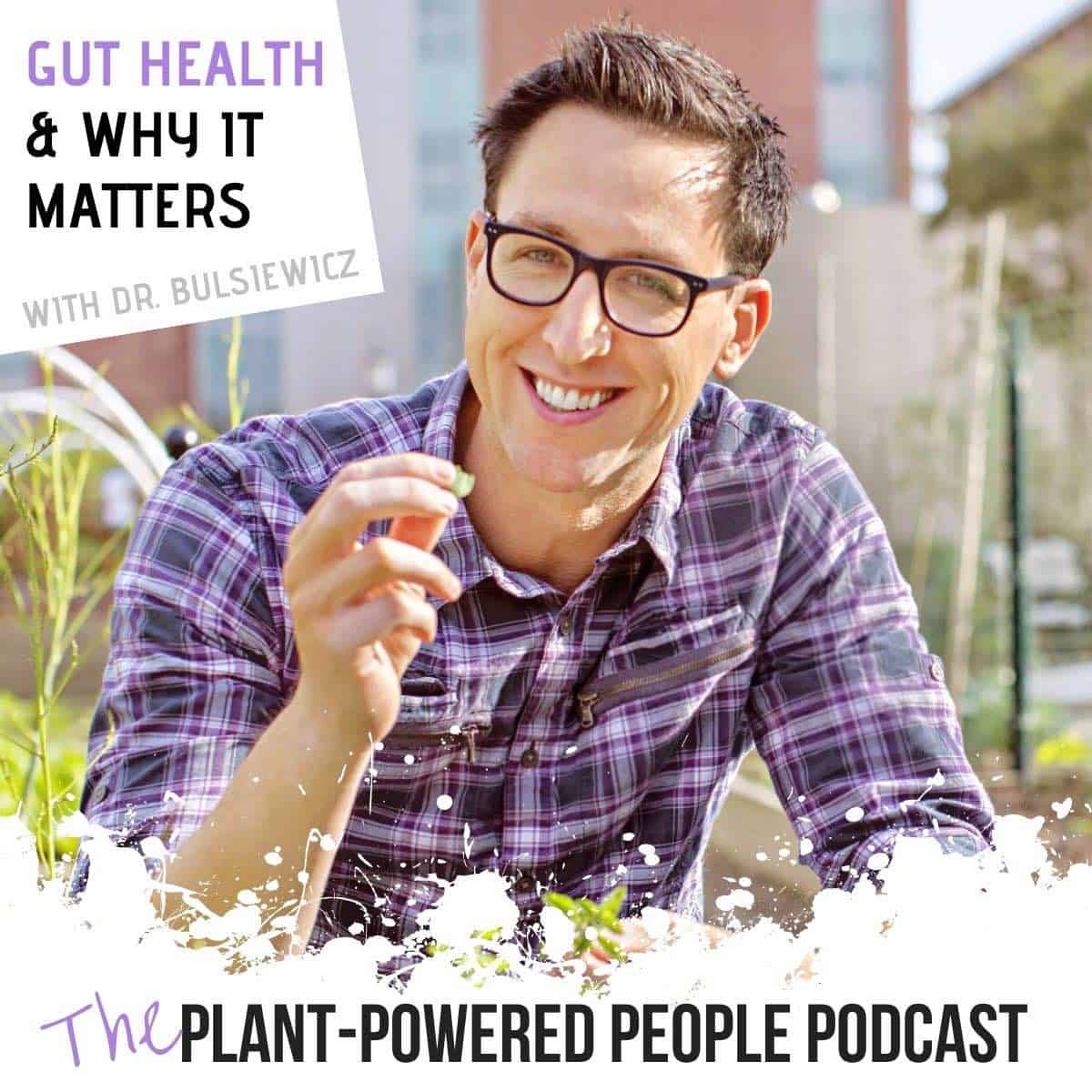
Dr. Angie Sadeghi
Dr. Angie Sadeghi is a vegan gastroenterologist who is passionate about the benefits of a plant-based diet for optimal gut health. She has authored numerous articles on plant-based living and frequently speaks on the subject.
Dr. Sadeghi’s work emphasizes the importance of incorporating plant-based foods into one’s diet to achieve optimal gut health. She believes that a diet rich in fiber and plant-based nutrients can improve digestion and reduce the risk of gut-related diseases such as colon cancer.
Naturopathic Doctors
Dr. Matthew Nagra
Dr. Matt Nagra is a Canadian-based plant-based nutrition expert, public speaker, and health coach. He earned his Doctorate in Naturopathic Medicine from the Boucher Institute of Naturopathic Medicine and has a Bachelor of Science in Microbiology from the University of Victoria. Dr. Nagra is an advocate for plant-based diets and focuses on helping people transition to a healthier way of living. He has written extensively on plant-based nutrition and has been featured in various health and wellness publications.
Dr. Nagra has a large following on social media, where he shares evidence-based information about plant-based living and debunks common myths surrounding this lifestyle. He was featured on the Episode 40 of The Plant-Powered People Podcast discussing fad diets and debunking health myths. In the podcast he the issues with the trendy keto diet, paleo diet, low-carb diet, bone broth, collagen supplements, and more. He also makes occasional appearances on the World of Vegan YouTube channel.
Vegan Doctors are Changing the World
Plant-based doctors play a critical role in the fight against chronic diseases, which are some of the leading causes of death worldwide. With their expertise in the power of diet and nutrition, they recognize that a plant-based diet can prevent and even reverse chronic diseases such as heart disease, diabetes, and cancer.
By educating patients about the impact a plant-based diet can have on their wellbeing, these doctors offer a solution that not only improves health outcomes but can even reverse disease caused by decades of poor choices.
As the medical community increasingly recognizes the benefits of plant-based diets, the influence of these doctors will only continue to grow, leading the way towards a healthier, more sustainable, and compassionate future.
The post 20+ Plant-Based Doctors You Need to Know About appeared first on World of Vegan.
By: World of VeganTitle: 20+ Plant-Based Doctors You Need to Know About
Sourced From: www.worldofvegan.com/plant-based-doctors/
Published Date: Mon, 11 Mar 2024 21:07:18 +0000
Leading a healthier lifestyle starts with understanding the power you have to control your own destiny. At Paleovsketo.com, we believe that a plant-based diet is key to achieving optimal health and wellness.
Our goal is to empower our community to embrace their bodies, their diets and life decisions with confidence, grace and integrity. We provide knowledge on nutrition trends ranging from paleo and keto diets to mindful meditation, intermittent fasting, and weight loss. Through education, inspiration and empowerment, our mission is to revolutionize the way people think about healthy eating.
Join us by sharing stories, passions, recipes and more with our community. All contributions are welcome - just email us at [email protected]! Let's take charge of our health together and revolutionize the future of nutrition!
Frequently Asked Questions
Is it necessary that you take supplements when eating a plant-based meal?
While a well-balanced plant-based diet can provide all the essential nutrients for maintaining good health, certain micronutrients are best supplemented to cover possible deficiencies. Vitamin B12 is vital for brain and nervous system health. It is usually only available in animal products. Vegans and vegetarians may be able to benefit from supplemental vitamin B12. Additionally, many foods on a plant-based diet lack enough iron and zinc, two minerals important for healthy metabolism, red blood cell production, tissue growth, and repair. In normal body processes such as inflammation control and brain function, omega 3 fatty oils play an essential part. Because of their biochemical properties, most plant-based food sources don't contain omega-3s. Supplementation may be able to maintain a delicate balance for this vital nutrient. Finally, calcium is important for strong bones. But it can also be found in small quantities through plants such as broccoli or kale. Consider taking separate supplements if you find it difficult to reach your daily calcium goal from food. It is always a good idea for you to check with your doctor before adding new supplements.
Is it possible for a plant-based diet to help you lose weight?
Yes, a plant-based diet is able to help you lose weight. A variety of fruits and vegetables, legumes, nuts and seeds, whole grains, and other plants-based proteins can give you enough volume to feel full without adding calories from unhealthy fats and carbohydrates. A well-rounded vegan meal plan is usually low in saturated fat and cholesterol-containing foods like red meat and processed snacks that tend to add weight instead of take it away. Research has shown that a plant-based diet can increase metabolism and reduce the risk of obesity. Incorporating healthy ingredients high in fiber and stopping the intake of unhealthy sugars, starches, white bread, and pasta can also further support weight loss while still providing important vitamins and minerals the body needs to stay healthy.
Are plant-based diets more expensive than other diets?
Plant-based diets may not necessarily be more expensive than other diets. You can eat a balanced plant-based diet with minimal expense, depending on what type of food you eat. Grains, beans, eggs and nuts can all be very affordable and offer a great source of protein at a lower cost. With proper meal planning, you can save money by purchasing in bulk or using sales to reduce food expenses. Besides individual ingredients, there are now many ready-to-eat plant-based meals that can further reduce your grocery expense.
Are there any celebrities or athletes that advocate for a plant diet?
There are many celebrities who support a plant diet. They include Kyrie Irving (NBA player), Lewis Hamilton (Formula 1 World Champion), Natalie Portman (actress), Meghan Trainor (singer) and Kenneth Farrow (NFL running back). Each of them have chosen the vegetarian/vegan lifestyle because it was best for them and have had impressive achievements in their respective fields, whether they are athletes or artists. Actress Alicia Silverstone even wrote a book titled Kind Diet, about her experiences with veganism. Novak Djokovic, professional tennis player has credited his successes to his unconventional eating habits of eating mostly organic and vegan foods during competitions. His stats are significantly better since he started this routine. The significant characteristics that all four professional athletes have identified include a greater energy level, faster healing from injuries, and improved health and wellbeing. This success story shows that plant-based nutrition can be a great tool to help athletes achieve greater athleticism.
Can you still dine out at restaurants if your diet is plant-based?
Many restaurants offer vegan options on their menus. There are many vegan restaurants opening up in large cities and towns. They offer a wide range of delicious and healthy food options. Many mainstream restaurants offer vegetarian-friendly options, so you can still enjoy the best of traditional restaurant cuisine while following a plant-based diet. Look for recipes that use vegetables, legumes, or beans as the star. Incorporate vinegar and healthy oils instead of mayonnaise or dressings high in saturated fat. Don't be afraid to ask your server what items can be made vegan or have dairy substituted with coconut or almond milk.
Also, it is worth looking into vegan cookbooks to find ideas for replacing meats or rich sauces. Many restaurants will accommodate guests who eat a plant-based diet. They will also do their best to meet your needs. With some research and creativity, eating out on a plant-based diet can easily be done and enjoyed!
Can I eat chicken if I follow a plant-based diet
It is impossible to eat chicken on a plant-based diet. A plant-based diet eliminates all animal products, including meat, fish, and poultry. There are many vegan alternatives to meat-centric dishes that offer the same taste and texture, but they don't use animal products. For example, soy-based meats such as tofu, seitan (wheat gluten), tempeh (fermented soybeans), and mock duck made from mushrooms can mimic the flavor of traditional meats. Vegetarian burgers made from black beans and quinoa are also comparable to beef burgers. Tofu mayo; coconut bacon strips or eggplant bacon bits; vegetable hot dogs made with seasoned texture soy protein; faux chicken strips of wheat gluten are all tasty alternatives.
Statistics
- Another found that following a diet rich in plant foods and lower in animal foods was associated with a 16 percent lower risk of cardiovascular disease and a 31 to 32 percent lower risk of death from cardiovascular disease. (everydayhealth.com)
- A study found that livestock provides just 18 percent of calories consumed globally but takes up 83 percent of farmland. (forksoverknives.com)
External Links
[TAG29]
[TAG31]
[TAG33]
- Effects of Plant-Based Diets on Weight Status: A Systematic Review - PMC
- Health professionals should use plant-based nutrition as a means to treat and prevent chronic diseases. PMC
[TAG36]
How To
How do I include more whole foods in my plant-based diet
A plant-based diet will provide you with more nutrients and vitamins. Start by replacing unhealthy processed foods and animal proteins with nutritious alternatives such as legumes or seeds. Include whole grains, nuts and fruits as a source of sustenance.
It is important to include a wide range of colors in your meals. In addition to being rich in antioxidants, colorful ingredients also boost immunity. For example, red pepper strips and oranges as well as black beans, spinach, corn muffins, and black beans. You can create meal plans based on seasonal produce and include recipes that appeal to every tastebud. Smoothies, stir-fries, and casseroles are all crowd-pleasers.
Whole foods have a longer shelf life than processed food, so it is important to include them in your diet. Planning out your week ahead can help you shop for vegan-friendly ingredients that won't spoil easily. This will make shopping easier and reduce waste.
Explore different ways to achieve a balanced lifestyle. You can make delicious vegan baked goods or substitute fish for it. You can experiment with food and learn new things. Over time, you will be able to manage your food choices without sacrificing taste or nutrition.
Resources:
 |
[TAG39]I’m so glad we made it to March. The days are growing longer already and I love how the spring sunshine illuminates our kitchen. The daffodils that…The post |
 |
[TAG40]No one food can reduce your risk for cancer, but there is an overall diet that can. Learn what it means to eat a plant-based diet and see all the ways it can |
 |
[TAG41]These hearty bowls feature roasted fajita veggies and halloumi cheese over beans and cilantro-lime rice. This recipe makes an amazing vegetarian dinner! I’m so |
 |
[TAG42]Following a plant-based diet (think vegan, vegetarian, or even flexitarian) is associated with a bevy of potential health benefits. That includes a lower risk |
 |
[TAG43]These thumbprint cookies offer classic shortbread flavor with dazzling jam centers. Using almond flour makes them gluten free and extra delicious! They’re |
 |
[TAG44]... |
 |
[TAG45]Ever tried artichoke in lasagna? If not, you’ve been missing out. This vegetarian recipe is freshly flavored, hearty and cheesy, but not too heavy. It’s a |
 |
[TAG46]Choosing more plant-based foods can help you eat a healthier diet. A Heart & Stroke dietitian explains how. |
 |
[TAG47]February is here! If you bookmarked any hearty soups and stews that you haven’t gotten to try yet, this is the month to make them. In just…The post What to |
 |
[TAG48]One of the most powerful steps you can take to improve your health is to move to a plant-based diet. We have everything you need to know to get started here |
 |
[TAG49]Whether you’re considering eating less meat or giving it up entirely. |
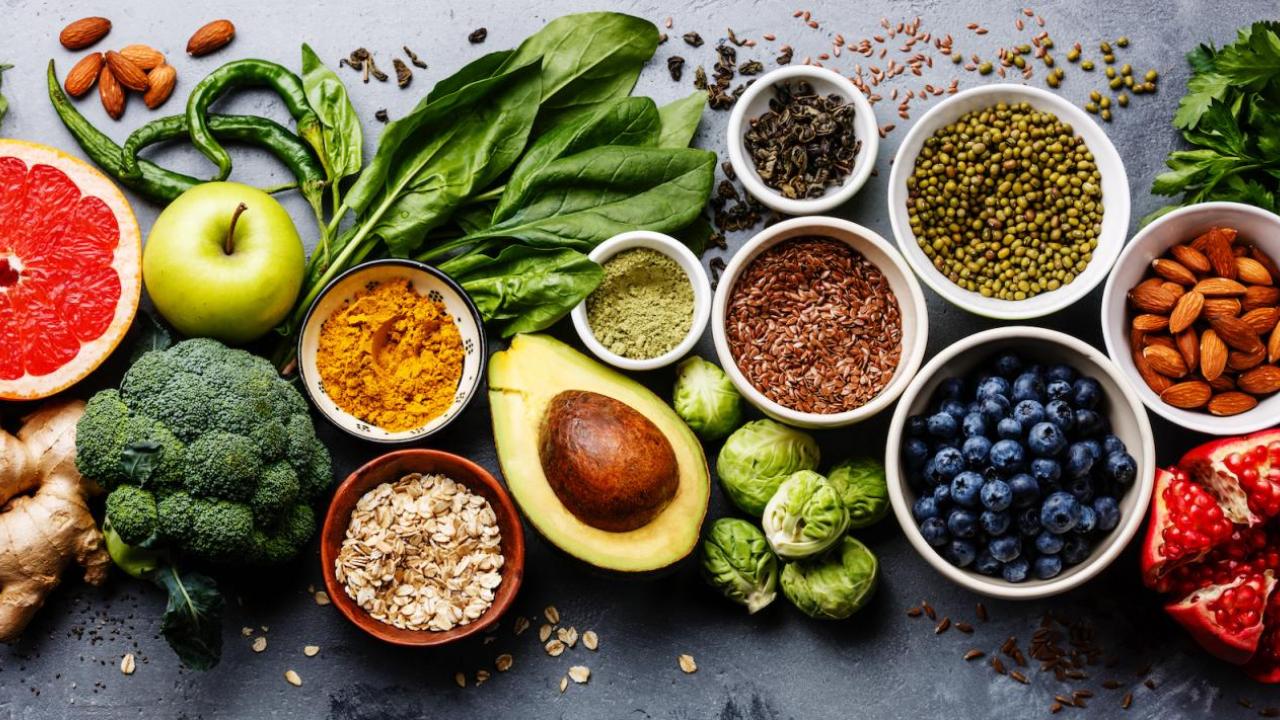 |
[TAG50]Columbia and NYP nutritionist Sabrina Toledano explains the benefits of a plant-based diet and how to get started. |
 |
[TAG51]Hint: Your energy levels, gut microbiome, and environmental impact all win big. |
Did you miss our previous article...
https://paleovsketo.com/plant-based/creamy-pea-pesto-pasta






